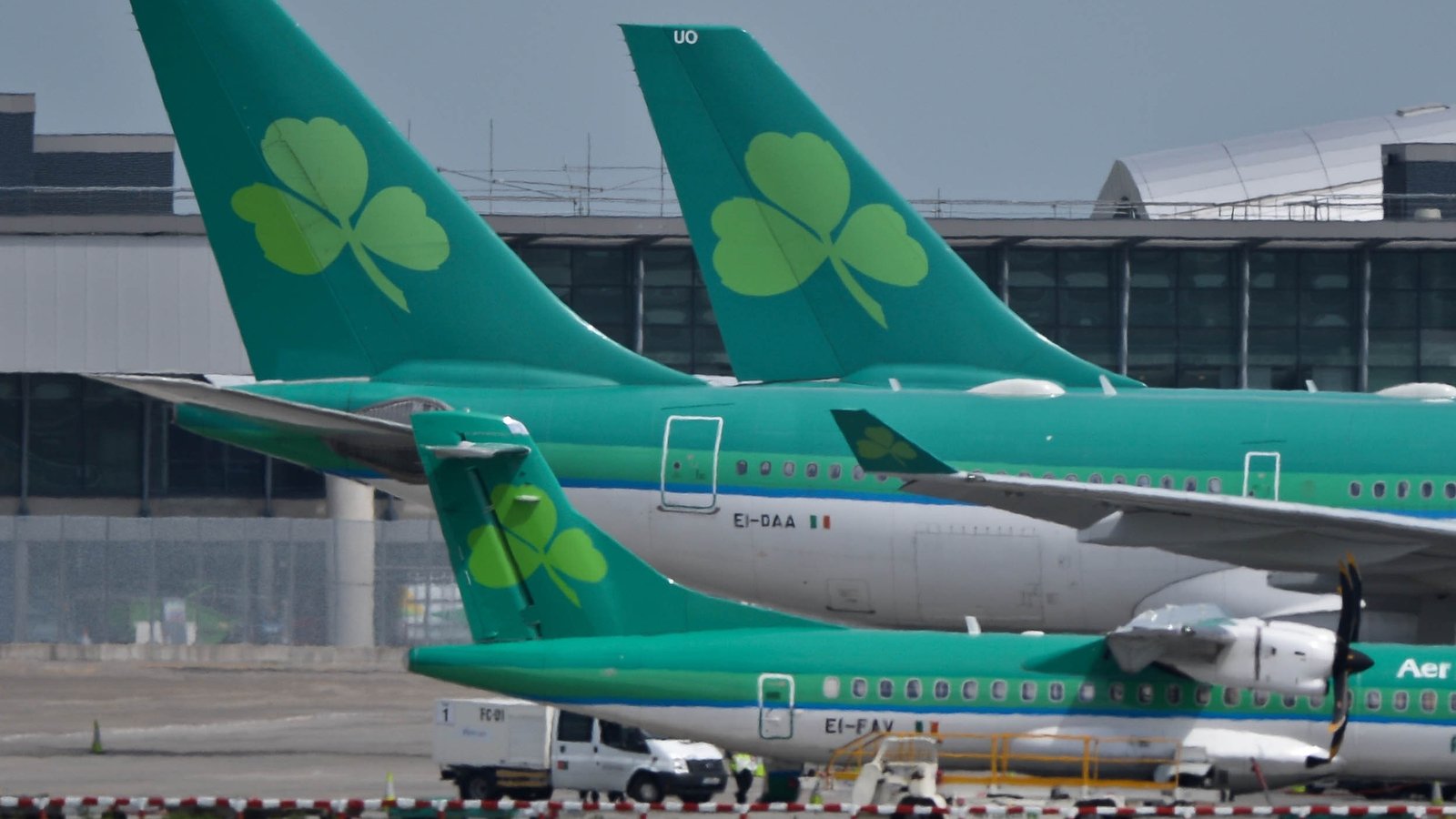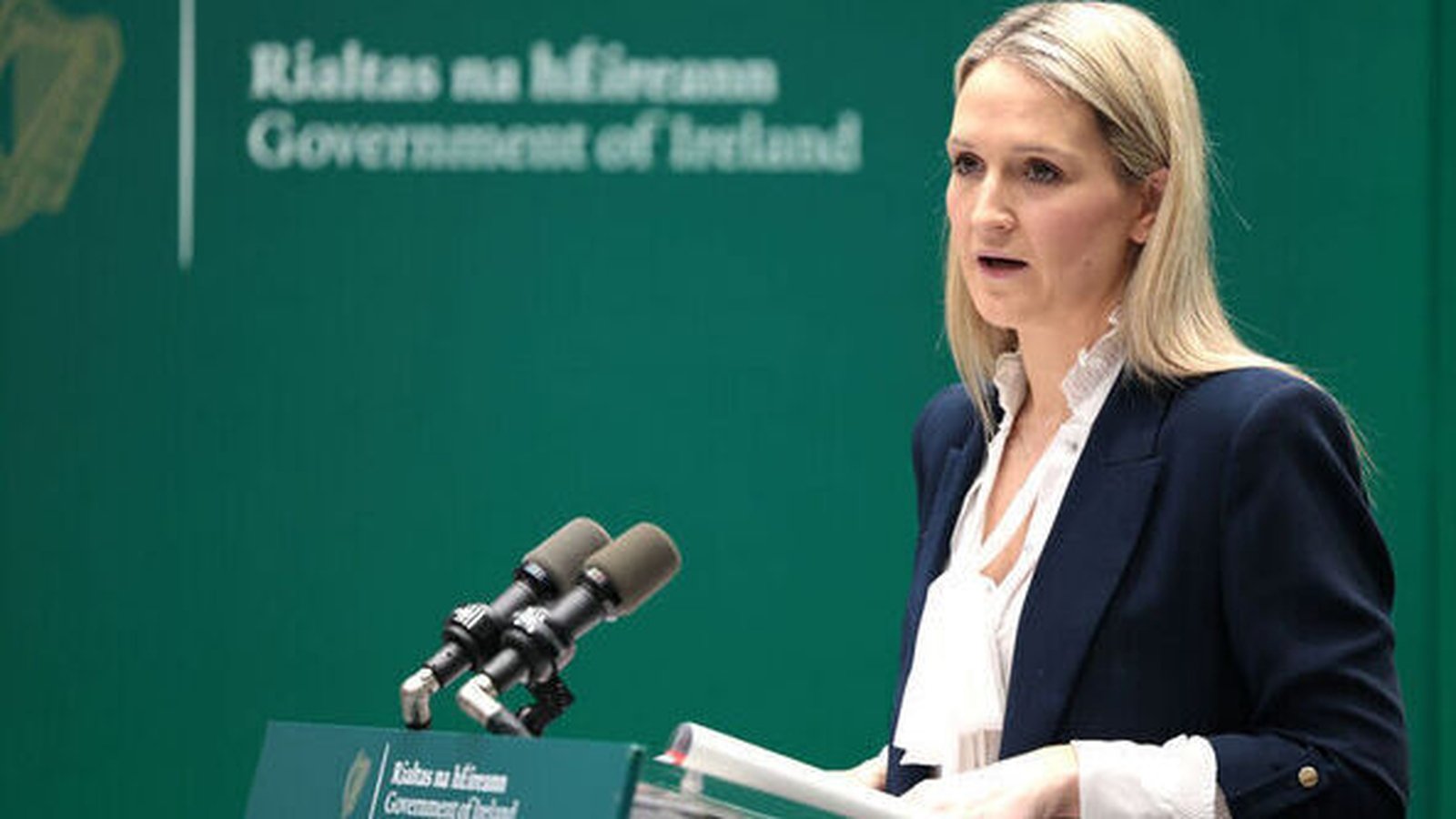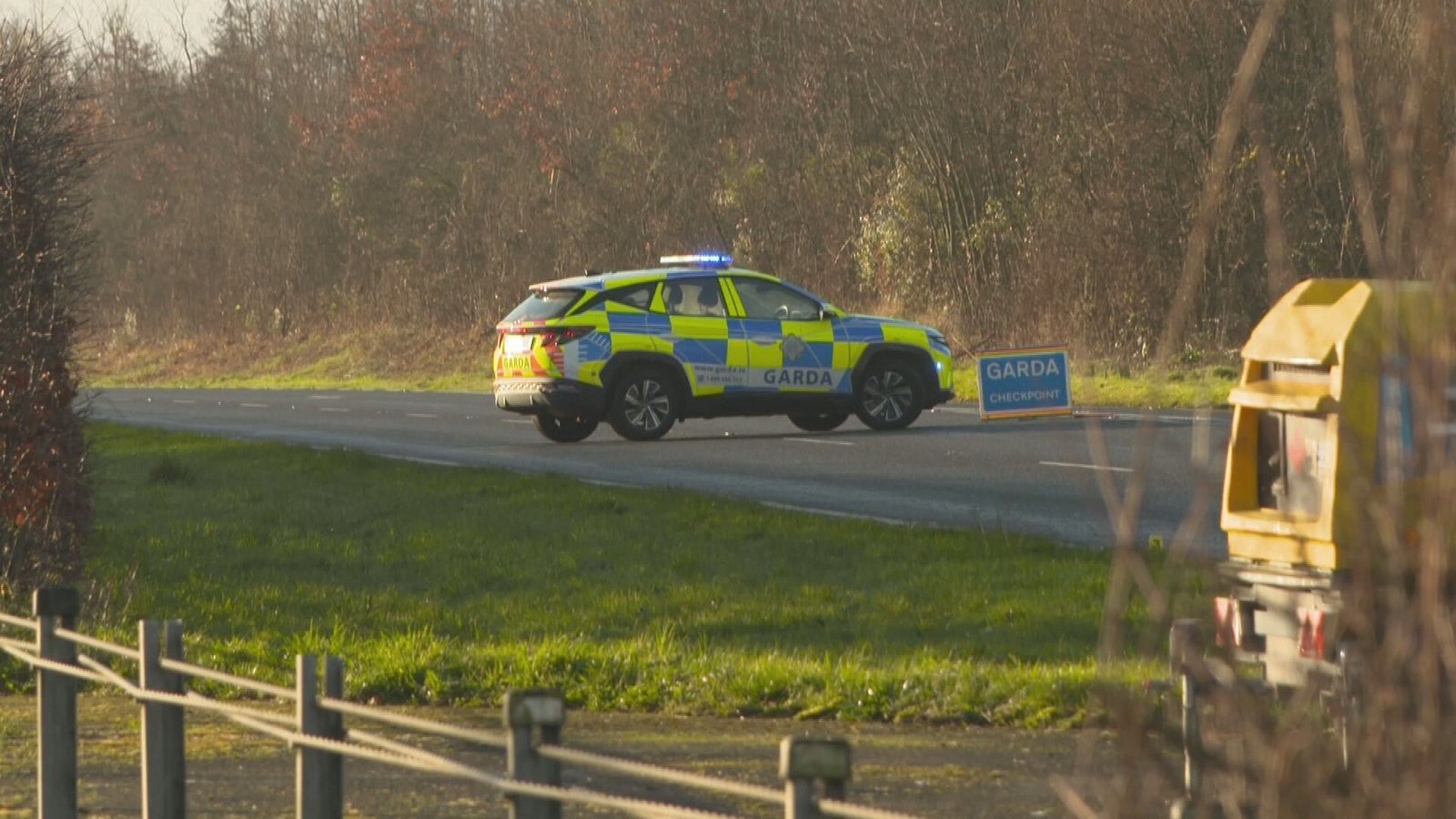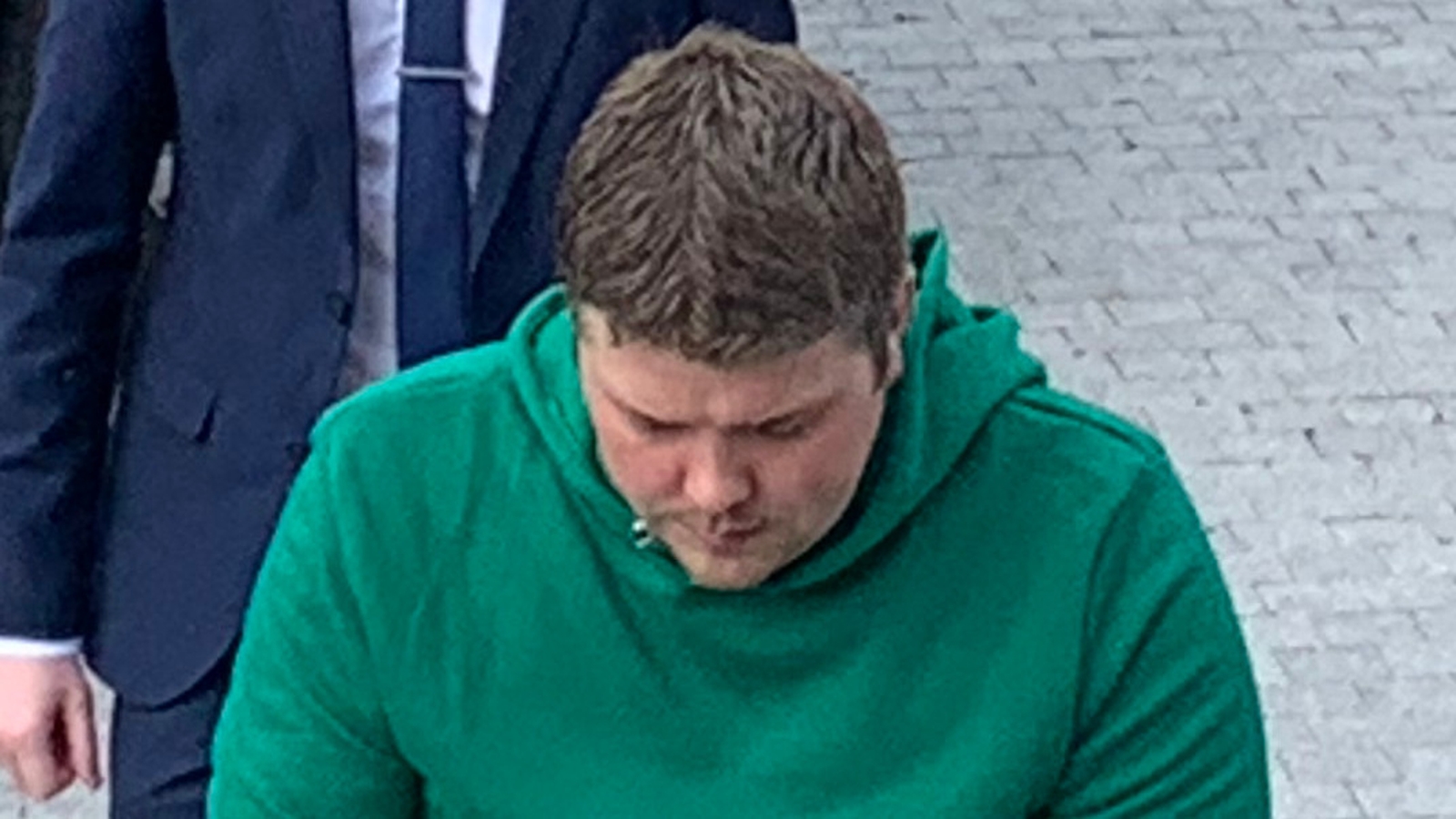‘No end in sight’ – Ukrainian refugees facing uncertain future
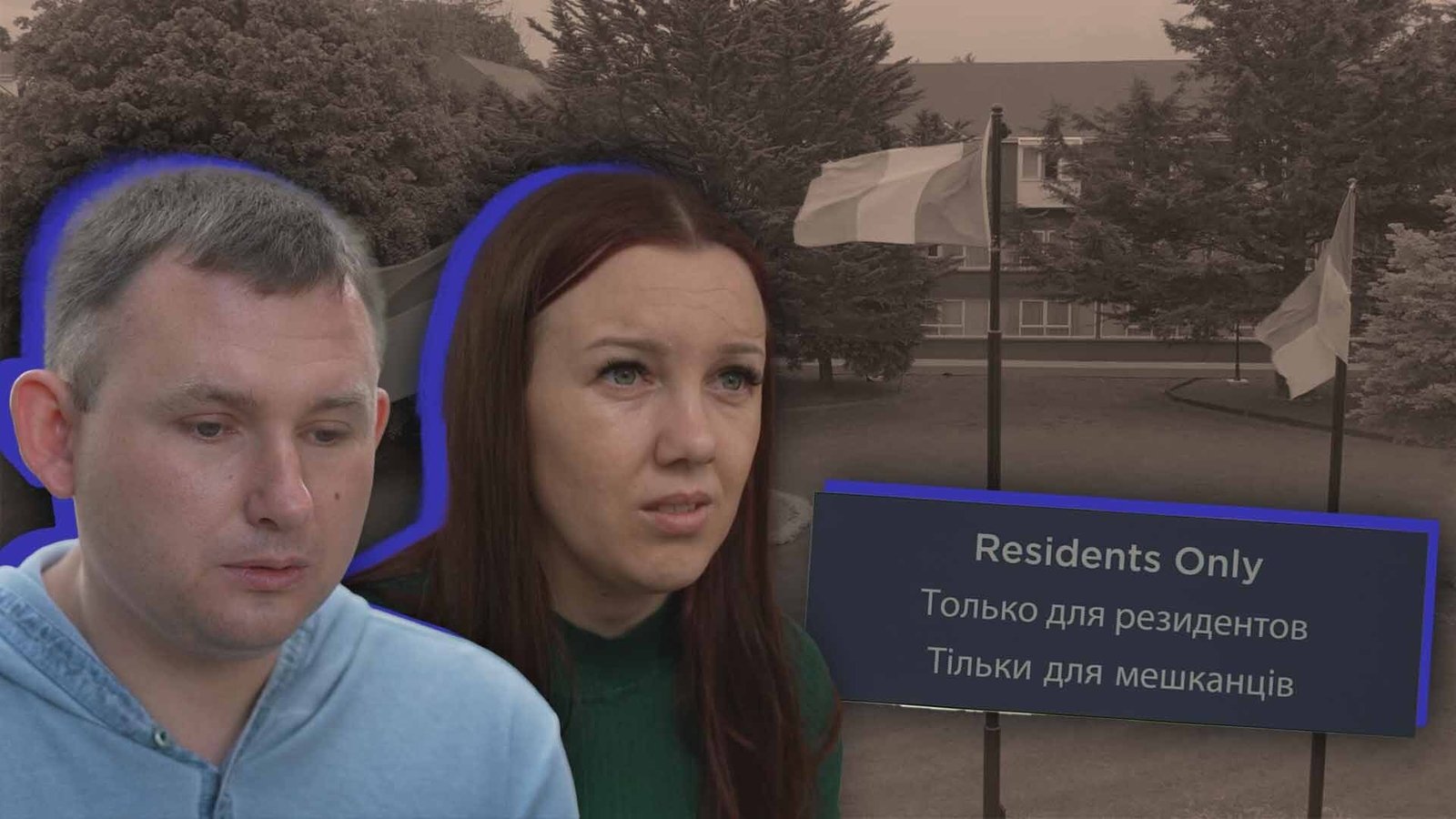
Plans to cut welfare payments to thousands of Ukrainian refugees is causing “huge stress,” according to campaigners who are appealing to the Government to reconsider the extent of the proposed reductions.
Last month it was announced that the entitlement of some Ukrainian refugees to social assistance benefits such as pensions or jobseekers allowance was to be cut. Those living in State-provided serviced accommodation like hotels will have their weekly payments reduced to €38.80 per week per adult and €29.80 per child.
This is in line with payments made to other asylum seekers.
At the Citywest Hotel in Saggart Co Dublin, Prime Time met residents concerned by the impending cuts. Among them was visually impaired resident, Yurii Olkisuk.
Gripping a white cane while sitting at one of the hotel’s picnic tables he told the programme that he can only see light and shadow. He described how he and a blind friend fled their homes near the Belarusian border when the war broke out.
“It was a very difficult journey because we didn’t know anything. We didn’t know where to catch a bus or where we were going,” Mr Olkisuk said
Yurii is among 1,600 Ukrainians living at the Citywest Hotel. The adjoining convention centre accommodates International Protection applicants from other countries. Around half of the hotel’s Ukrainian residents are pensioners or have a disability.
Yurii has got to know the layout of the hotel and the grounds so he can navigate independently. While he’s managed to learn English through audio tutorials and speaking clubs he can’t work and depends on welfare payments.
“I need to buy medicine that is not covered by the medical card, clothes and other essential things. When the payment is cut it will be very difficult for us,” he told Prime Time.
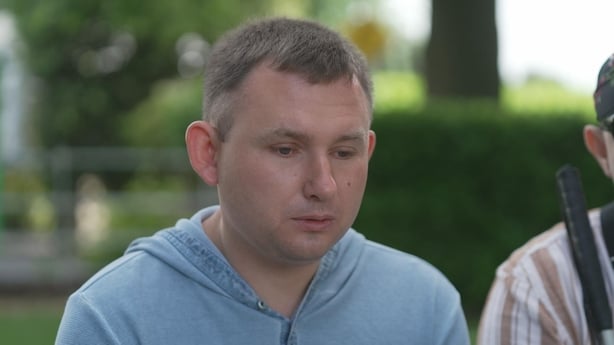
Vasylyna Tkachuk, another of the hotel’s visually impaired residents, has an additional vulnerability – she’s receiving chemotherapy treatment at St James’s Hospital in Dublin 8.
She described how her welfare payments help to cover additional medicines and health foods.
The pair told the programme how when the war broke out it was particularly difficult for blind people to find their way to bomb shelters. A return to Ukraine is currently impossible.
“I’m happy here, but my heart is in Ukraine with my family,” Vasylyna explained.
Food, laundry and other services are provided at many of the hotels hosting Ukrainians and the Government says this move is designed to bring equity between existing Ukrainian refugees and those arriving in recent months who are already receiving the reduced payment.
Ukrainians living in accommodation such as host families or private rental arrangements will not have any changes made to their payments.
Since December around 13,000 Ukrainians have left hotels, B&Bs and other State-provided accommodation.
Anatoliy Prymakov of Ukraine Action Ireland told Prime Time the proposed welfare cuts go too far. People will be confined to hotels and unable to integrate and improve their own circumstances, he said.
“Do we want these people to move on and be more productive in society or do we want to create conditions that are limiting?” Mr Prymakov said.
Many hotel residents pay for food and some utilities and it’s not clear what will happen to those charges once benefits are cut. The Departments of Children, Equality, Disability, Integration and Youth and Social Protection said they are still working on operational arrangements.
In addition to the hundreds of pensioners and people with a disability, the Citywest Hotel is also home to around 500 Ukrainian parents and children. Svitlana Novozhylov’s 14-year-old son Volodymyr has Cerebral Palsy. He attends school locally and has an SNA to help him during the school day.
“He’s very happy, he has new friends in school and Irish people are very kind,” Ms Novozhylov said.
But caring for her son makes working extremely difficult for Svitlana. While child benefit is not being reduced, a cut in jobseekers’ benefit would make it harder for her to pay for additional requirements such as medical shoes and swimming, she said.
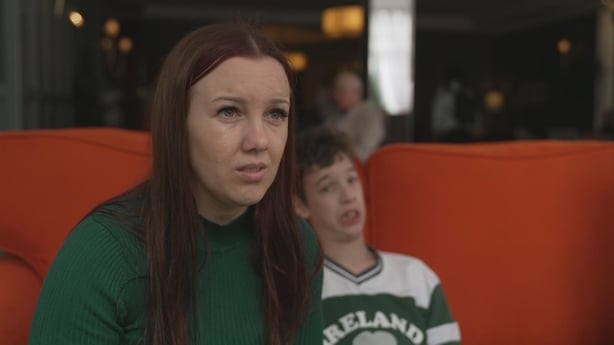
Lidiia Obukhova and Angelina Kravchenko are also raising children in the hotel.
“€38 a week won’t cover clothes, medicine, school expenses, and hobbies for children,” Lidiia said.
She explained that while she can speak English and has a masters degree in finance, working is too difficult to arrange around childcare.
“I have no family here, no friends and no husband. So, I have no support here,” Angelina added.
The Department of Children, Equality, Disability, Integration and Youth confirmed there is no date yet for the implementation of welfare cuts.
Natalya Krasnenkova, who recently stood for election in Killarney, Co Kerry, told Prime Time that Ukrainians are feeling “huge stress”.
“Not all people can work and vulnerable groups like young mums and people with a disability can’t survive on €38.”
She suggested some people could be forced to return to Ukraine, which remains 18% occupied with a new front recently opened near the second largest city, Kharkiv.
“It means pushing them back to a war zone,” Ms Krasnenkova said.
Only 78% of the PPS numbers issued to Ukrainians in Ireland are still active, according to the CSO, suggesting 28,000 Ukrainians are no longer in the country.
Anatoliy Prymakov contends that some have returned to Ukraine deciding to “take their chances” given the uncertainty in Ireland.
He told Prime Time that while some cities in Ukraine are not as affected by the war, nowhere is safe from Russian missiles.
“I ask the question; would an Irish person take their family on a holiday to Ukraine – spend two weeks there with their family and their loved ones? If the answer is no, then it is not safe for Ukrainians to be there with their families and their kids.”
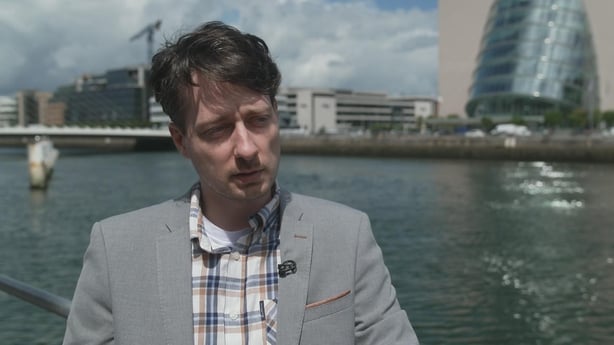
Ukrainian arrivals into Ireland have been decreasing since November of last year. In recent months less than a thousand refugees have been arriving every month. The equivalent figures last year were two or three times larger.
New arrivals are subject to a new, 90-day limit on emergency accommodation. The first people reached that limit over the past week but it’s understood that, so far, alternative accommodation has been found.
The Government said the limit on emergency accommodation is intended to put our response on a sustainable footing, highlighting secondary movements of Ukrainians coming here after another European country.
While Anatoliy Prymakov accepts that providing serviced hotel accommodation alongside full welfare payments is not a sustainable model, he suggests there has been an absence of a long-term government strategy to house and support Ukrainians, an over reliance on hotels, and a lack of urgency around the modular homes programme.
“At the start of 2022 there was this big statement from the Irish Government that we’re in this together for as long as it takes, but there’s definitely been a turn in the public’s perception of the support that has been extended to Ukrainians because there is no end in sight and there is no plan,” he said.
Reporter Louise Byrne and producer Lucinda Glynn’s report will broadcast on the 20 June edition of Prime Time on RTÉ One and RTÉ Player.


